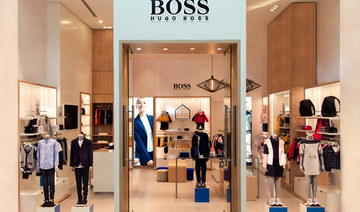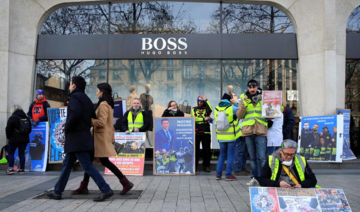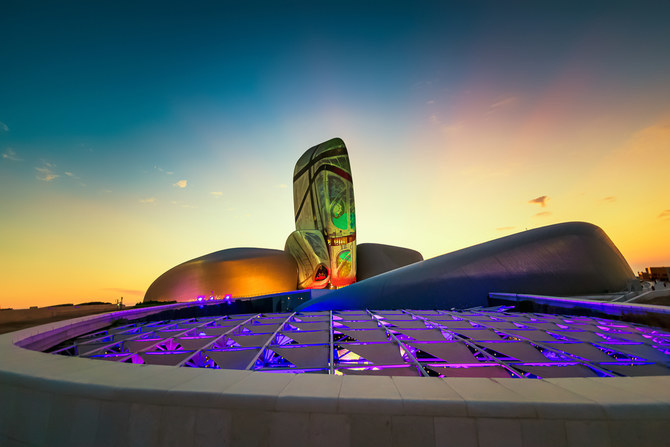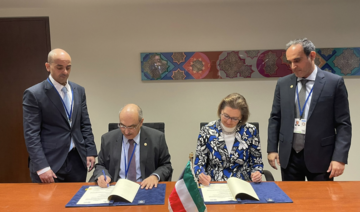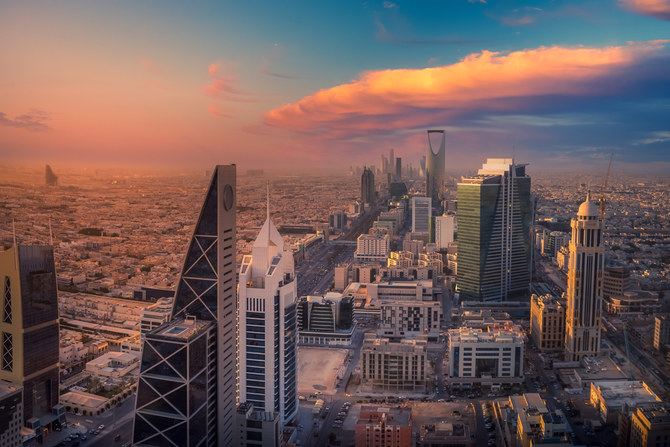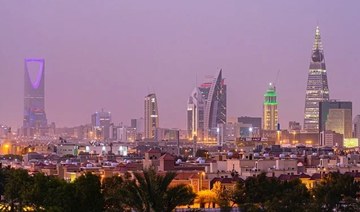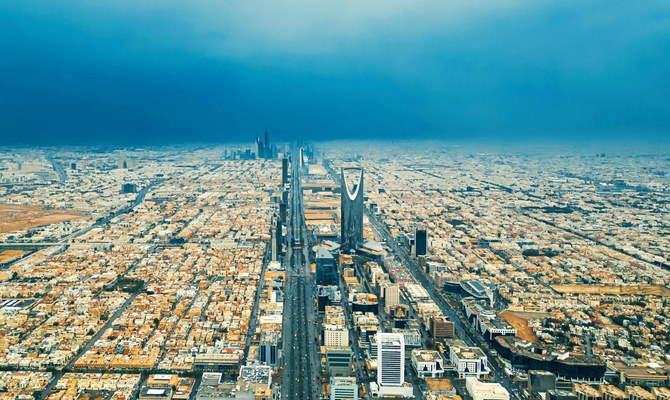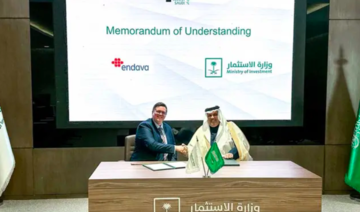RIYADH: As temperatures continue to rise worldwide, the Arab region is on the frontline of the battle against climate change.
In the global race to achieve net-zero, the Middle Eastern countries face unique challenges that compound the urgency of tackling this environmental crisis to safeguard their future.
The Gulf region is one of the areas most heavily impacted by climate change, primarily due to the already elevated temperatures that have exceeded the global average.
In recent years, the Arab world has heightened its focus on the ramifications of global warming, particularly its economic impacts, to avert the detrimental consequences.
Events such as MENA Climate Week in Riyadh in 2023, the UAE’s COP28 in 2023, and Egypt’s COP27 in 2022 underscore the region’s commitment to addressing this pressing issue.
Speaking to Arab News, Sal Jafar, CEO of ESG MENA, underscored these efforts, stating: “I have observed firsthand the transformative strides the GCC countries are making in the realm of energy transition and climate change efforts.”
He added: “This region, historically reliant on hydrocarbon economies, is now at the forefront of a pivotal shift toward sustainability and environmental stewardship, underpinned by an ESG framework.”
The intricate relationship between atmospheric changes and financial growth in these nations underscores the necessity of adopting sustainable development practices.
A recent report by the Arab Monetary Fund states that by the year 2050, the region may experience a significant reduction in water availability and agricultural productivity.
This decline, which is connected to climate-related water scarcity, could result in economic losses equivalent to 14 percent of the area’s gross domestic product.
Saudi Arabia, a pivotal player in the Middle East and a significant oil producer, embodies the region’s complexities and potential for transformation.
The Kingdom has been keen to amplify its efforts in energy transition for at least a decade, Yousef Al-Shammari, the CEO of CMarkits, a UK-based energy research consultancy firm, told Arab News.
These measures began with the launch of the King Abdullah City for Atomic and Renewable Energy in 2013, he noted, saying: “At that time, the aim was to minimize crude oil consumption by utilizing alternative sources of energy. Especially because the local consumption of crude is projected to keep rising because of national consumption of electricity and, of course, road transport demand.”

This region, historically reliant on hydrocarbon economies, is now at the forefront of a pivotal shift toward sustainability and environmental stewardship, underpinned by an ESG framework.
Sal Jafar, CEO of ESG MENA
Crude oil demand is projected to rise to as high as 8 million barrels per day, while the Kingdom produces 10 million barrels. This will inevitably lead to an “economic security risk” and result in the nation’s first motive of ensuring energy efficiency, Al-Shammari said.
However, with rising concerns about escalating temperatures and environmental sustainability, the nation launched its Vision 2030 in 2016 to position itself as a global leader in clean energy production and divert its economy from oil dependency.
The road to net-zero
The Kingdom has embarked on various initiatives to reduce its carbon footprint and diversify its economy beyond oil.
Mitigative efforts include ambitious targets of 44 million tonnes of carbon dioxide captured annually by 2035 and 2 million tonnes of CO2 seized and utilized daily to produce glycol, urea and green methanol, as well as clean fuels, according to the 14th IEA-IEF-OPEC Symposium on Energy Outlooks.
This is being made possible through the circular carbon initiative, which was introduced during the Kingdom’s presidency of the G20, the CEO highlighted, saying: “The circular carbon initiative that includes removal reduce, reuse, and recycle,” he explained, adding: “Saudi Aramco is pursuing a very ambitious program on that line. I think there is one major project, which is starting in 2027, which will be the world’s largest CO2 capture project.”
The facility, which Aramco is said to play a significant role in, seeks to capture 9 million tonnes per annum of CO2 by 2027, with the aim of increasing its capacity to 44 million tonnes per annum by 2035, Al-Shammari outlined.
In October of 2022, the Kingdom’s sovereign wealth fund launched its regional Voluntary Carbon Market company during the sixth edition of the Future Investment Initiative in Riyadh.
This move allowed for tradable CO2 shares to be launched on an exchange, with major players in the Saudi energy field, like Aramco and SABIC, taking part.
The idea of the VCM is to allow companies to pay to compensate for their CO2 emissions. Additionally, the market’s voluntary nature presents a greater chance for success than compulsory sectors implemented in other regions, Al-Shammari outlined.
He said: “It’s voluntary, which means it can have a bigger impact than compulsory carbon markets, which we have seen in Europe, which did not really lead to any carbon reductions. The idea is, by being voluntary, it essentially enables companies to make economic sense of it. So when you have an economic return by having these investments in carbon markets, that would pay off the cost of capturing carbon. So somehow, it encourages producers to minimize their carbon emissions.” He added: “There is so much research and literature that has been done on that and the optimism about the
voluntary market is so huge and encouraging producers to minimize emissions compared to the compulsory markets.”
Greening the world
Equipped with a strategic location at the crossroad of three continents, the Kingdom is well positioned to lead in renewable energy exports globally.
Two ambitious projects outlined in the Symposium on Energy Outlooks include exporting 150,000 tonnes of clean ammonia globally and building the world’s largest green hydrogen project in NEOM.
Therefore, the nation’s location essentially allows it to export its potentially massive renewables supply east or west, Al-Shammari highlighted.
As European countries look to produce and import green hydrogen, Saudi Arabia will remain the continent’s supplier “for the foreseeable future,” he outlined.
He said: “As a part of the decarbonization plans, if you want to produce green hydrogen in Germany, it’s going to cost you $5 a kilogram and you’re going to produce it in Saudi Arabia, it’s going to cost you between $1 and $2 a kg.”
He added: “In the meantime, for the foreseeable future, Germany, which is Europe’s largest economy, will be dependent on and will need to import green hydrogen from cheap places like Saudi Arabia.”
Similarly, Saudi energy giant ACWA Power currently holds the world’s most extensive green hydrogen storage unit, with 1.2 million tonnes of ammonia produced per annum.
The company can “easily” import and export this large sum from its site in the northwest region of the Kingdom to Europe.
These efforts are allowing the country to shift its global image from a crude oil exporter to a major player in all energy fields.




